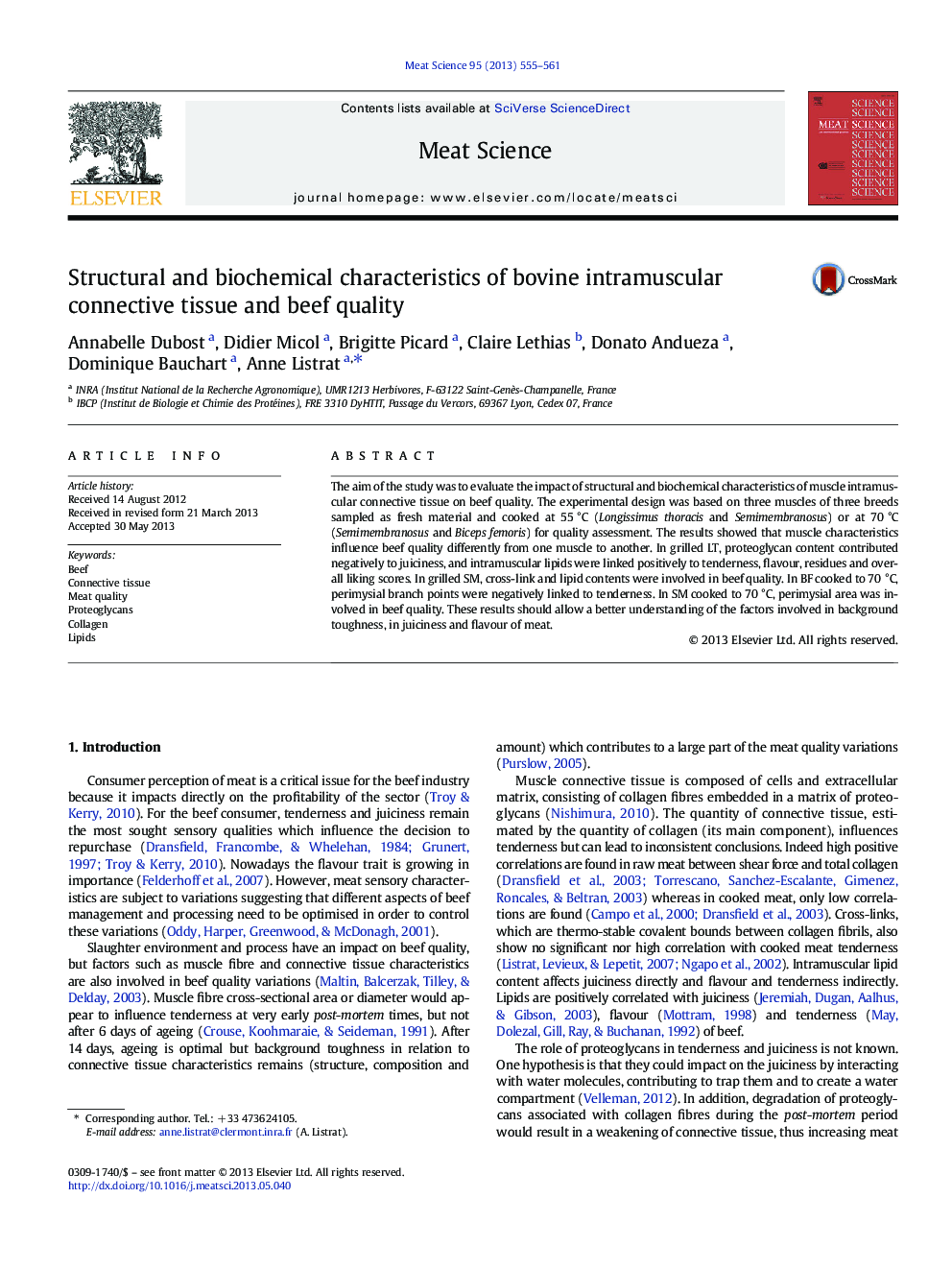| کد مقاله | کد نشریه | سال انتشار | مقاله انگلیسی | نسخه تمام متن |
|---|---|---|---|---|
| 5792181 | 1109631 | 2013 | 7 صفحه PDF | دانلود رایگان |
- Beef quality variations were expressed differently from each cooked muscle.
- Proteoglycans played a role in juiciness in grilled LT and cooked water bath SM.
- When grilled at 55 °C, cross-links and lipids both contributed to beef quality traits.
- Perimysium contributed to beef quality traits for meat cooked at 70 °C in water-bath.
The aim of the study was to evaluate the impact of structural and biochemical characteristics of muscle intramuscular connective tissue on beef quality. The experimental design was based on three muscles of three breeds sampled as fresh material and cooked at 55 °C (Longissimus thoracis and Semimembranosus) or at 70 °C (Semimembranosus and Biceps femoris) for quality assessment. The results showed that muscle characteristics influence beef quality differently from one muscle to another. In grilled LT, proteoglycan content contributed negatively to juiciness, and intramuscular lipids were linked positively to tenderness, flavour, residues and overall liking scores. In grilled SM, cross-link and lipid contents were involved in beef quality. In BF cooked to 70 °C, perimysial branch points were negatively linked to tenderness. In SM cooked to 70 °C, perimysial area was involved in beef quality. These results should allow a better understanding of the factors involved in background toughness, in juiciness and flavour of meat.
Journal: Meat Science - Volume 95, Issue 3, November 2013, Pages 555-561
